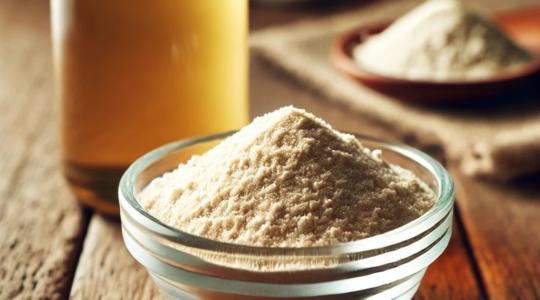Monitoring at Dr. Behr
 Customers of a reliable supplier of premium raw materials for dietetics and pharmaceutics expect a consistent quality policy.
Customers of a reliable supplier of premium raw materials for dietetics and pharmaceutics expect a consistent quality policy.
How this consistent quality policy is implemented at Dr. Behr, for example by targeted monitoring measures defined in our monitoring plan as part of DIN ISO 22000, you will read in the interview with Managing Director Martin Landré.
Mr Landré, monitoring is the systematic collection, measurement or surveillance of a process. What does monitoring exactly mean at Dr. Behr?
In our case, monitoring is the systematic surveillance of the most important parameters that the manufacturer specifies for our products in the analysis certificate. As part of our DIN ISO 22000 certification, we developed a monitoring plan that is recorded in our resource planning system. This way, we can determine for every order whether, and if so what parameters shall be monitored. These analyses are carried out by accredited German laboratories.
Furthermore, we monitor the temperature in our cold store to ensure the compliance with the temperatures required for our high product quality.
What is the purpose of your monitoring measures?
Monitoring shall eliminate potential hazards, for example, products that do not comply with the legislation.
What’s more: we can find out whether the quality of the manufacturers’ analysis certificates and thus of our products is met. And monitoring is also very useful when it comes to assess the suppliers, as we can compare the actual values that we determined with the values specified by the manufacturer.
How do the clients benefit from Dr. Behr’s monitoring activities?
hanks to the analyses, our customers can rely on a proven, high quality. Monitoring therefore is another component of our consistent quality assurance. In addition, they can see at a glance that the specified values are met: in the Dr. Behr analysis certificate we mark these values with (*). And, last but not least, the analyses prove that our products comply with the EU directives and regulations for food safety.
If you had to describe ideal monitoring, what would that be?
The ideal case would be that products are examined prior to purchase and only need to be accepted if the test reports of our external laboratories reinforce the values stated by the manufacturer or supplier.
Because of the costs involved, however, not every parameter in every single manufacturer analysis certificate can be examined for each order. So, where appropriate, our clients are responsible of carrying out own analyses as well.
Mr Landré, thank you very much for the interview.
You would like to know more about our quality standards? Simply contact us!



